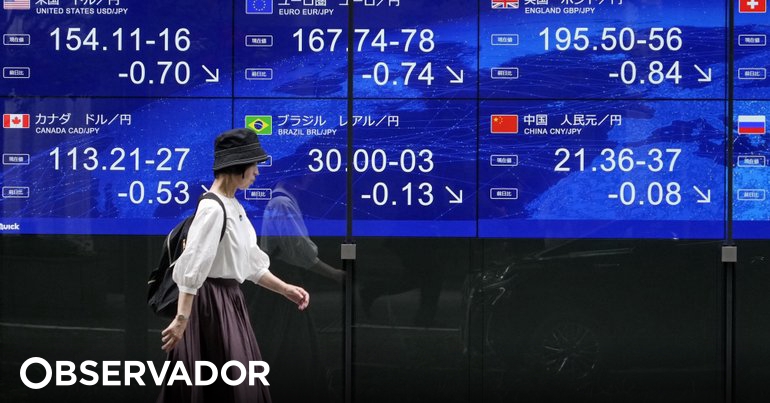
The Japanese currency was trading this Thursday above 171 yen per euro, a minimum since the creation of the European currency in 1999, having also surpassed 160 yen per dollar, for the first time in 37 years.
In the foreign exchange market, the Japanese currency reached 171.79 yen per euro in the early hours of the morning in Tokyo, the lowest level in its history, while against the dollar it was quoted in the range between 160.78 and 160.88 yen, the level lowest since December 1986.
Japan’s vice finance minister, who is responsible for foreign exchange issues, reaffirmed the government’s commitment to taking “appropriate measures” and added that the rapid depreciation represents “a serious concern.”
We do not have specific levels in mind, but we are determined to respond to the rapid and disorderly movements led by speculators,” said Masato Kanda.
“In this context, the recent and rapid devaluation of the yen is a serious concern,” said the official, in statements published by the Japanese public news agency Kyodo.
The yen’s further depreciation came after rumors that the US Federal Reserve (Fed) could continue to postpone an expected cut in interest rates and even return to increases to control inflation.
US Federal Reserve does not lower interest rates. “Inflation has slowed significantly but remains too high”
In March, the Bank of Japan decided to raise its benchmark short-term interest rates to 0.1%, first increase in 17 yearsputting an end to decades of negative rates.
Japan’s central bank does not rule out further interest rate hikes to curb inflation
However, the yen continued to fall, given that the interest rate is still far from those practiced by the main central banks, including in the United States and the European Union.
US dollar breaks 160 yen barrier for first time since 1990
The weakness of the Japanese currency has been associated by analysts not only with this political divergence, but with other risk factors such as the progress of the conflict in the Middle East and the increase in the price of oil on international markets.
International Energy Agency reduces global oil demand forecast for 2024 for the second consecutive month
A weak yen benefits foreign businesses of Japanese companies, which see inflated remittances when they are repatriated and improve the competitiveness of their products.
On the other hand, it has a negative impact on Japan’s accounts, by making importssomething the country is highly dependent.
Source: https://observador.pt/2024/06/27/moeda-japonesa-cai-para-minimo-historico-face-ao-euro/

